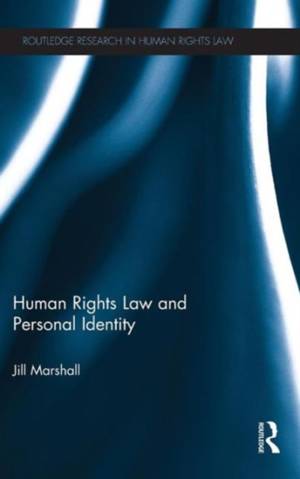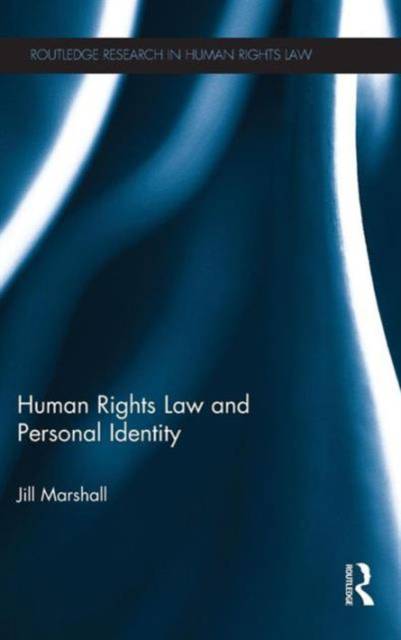
- Afhalen na 1 uur in een winkel met voorraad
- Gratis thuislevering in België vanaf € 30
- Ruim aanbod met 7 miljoen producten
- Afhalen na 1 uur in een winkel met voorraad
- Gratis thuislevering in België vanaf € 30
- Ruim aanbod met 7 miljoen producten
Omschrijving
This book explores the role human rights law plays in the formation, and protection, of our personal identities. Drawing from a range of disciplines, Jill Marshall examines how human rights law includes and excludes specific types of identity, which feed into moral norms of human freedom and human dignity and their translation into legal rights.
The book takes on a three part structure. Part I traces the definition of identity, and follows the evolution of, and protects, a right to personal identity and personality within human rights law. It specifically examines the development of a right to personal identity as property, the inter-subjective nature of identity, and the intercession of power and inequality. Part II evaluates past and contemporary attempts to describe the core of personal identity, including theories concerning the soul, the rational mind, and the growing influence of neuroscience and genetics in explaining what it means to be human. It also explores the inter-relation and conflict between universal principles and culturally specific rights. Part III focuses on issues and case law that can be interpreted as allowing self-determination. Marshall argues that while in an age of individual identity, people are increasingly obliged to live in conformed ways, pushing out identities that do not fit with what is acceptable. Drawing on feminist theory, the book concludes by arguing how human rights law would be better interpreted as a force to enable respect for human dignity and freedom, interpreted as empowerment and self-determination whilst acknowledging our inter-subjective identities.
In drawing on socio-legal, philosophical, biological and feminist outlooks, this book is truly interdisciplinary, and will be of great interest and use to scholars and students of human rights law, legal and social theory, gender and cultural studies.
Specificaties
Betrokkenen
- Auteur(s):
- Uitgeverij:
Inhoud
- Aantal bladzijden:
- 286
- Taal:
- Engels
- Reeks:
Eigenschappen
- Productcode (EAN):
- 9780415529723
- Verschijningsdatum:
- 8/07/2014
- Uitvoering:
- Hardcover
- Formaat:
- Genaaid
- Afmetingen:
- 160 mm x 239 mm
- Gewicht:
- 557 g

Alleen bij Standaard Boekhandel
Beoordelingen
We publiceren alleen reviews die voldoen aan de voorwaarden voor reviews. Bekijk onze voorwaarden voor reviews.











